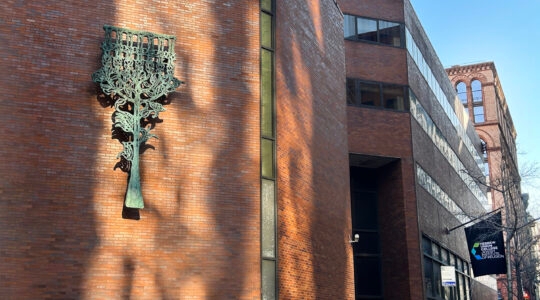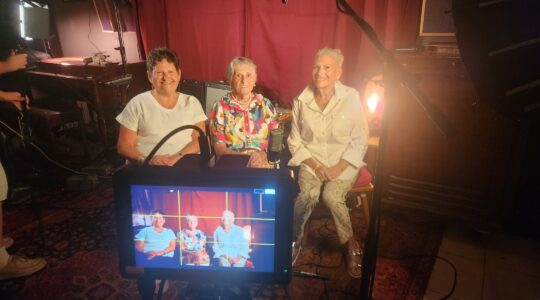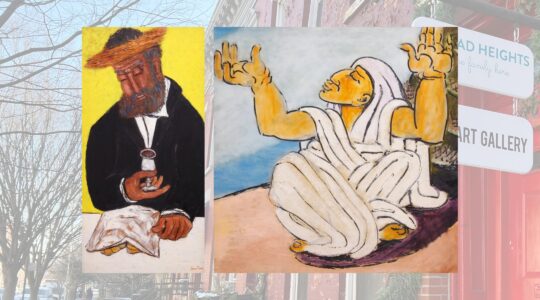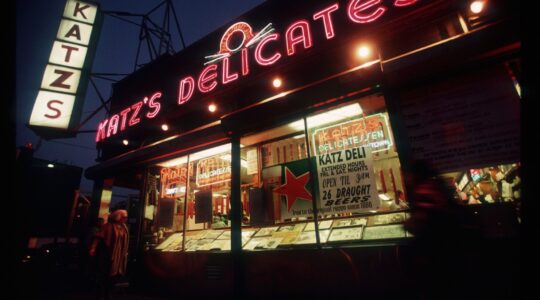With negotiations to curtail Iran’s nuclear ambitions going on in Geneva, talk of centrifuges, which are used to enrich uranium, is plentiful these days.
But the image of a centrifuge took on a whole different spin, so to speak, late last month with a panel discussion on the intersection of art and social activism tied to an exhibition of Israeli artists now on view at the Nathan Cummings Foundation.
“I think the idea of Israel, in a lot of people’s minds, is pretty monolithic,” says Chen Tamir, curator of the group exhibition entitled “Centrifuge.”
“Israel is either utopian or dystopian, either glorified or demonized. I wanted to portray the more complicated issues that are part of the reality on the ground here,” she says.
The show is produced by Artis, a New York-based nonprofit promoting art from Israel, and on Jan. 23 Artis and the New Israel Fund recently held a showing of it, followed by a discussion moderated by Stephanie Ives, New York director of NIF. The panelists were Mati Milstein, a photojournalist working in Israel and the Palestinian Territories, and Nadia Ben-Youssef, U.S. representative of Adalah, The Legal Center for Arab Minority Rights in Israel.
Ben-Youssef, an American human rights lawyer, told the audience that Adalah began using art to change laws after the law itself failed them. For years, the organization battled Israel’s 2003 Citizenship and Entry Law, which bans family unification of Israeli Arabs with residents of the 1967 occupied territories, essentially separating 15,000-20,000 Arab families. Bringing in a slew of international law experts and human rights petitions, Adalah fought the law all the way to the Israeli Supreme Court, where, in 2012, it lost. The law was upheld.
The organization realized it needed to find other channels to change policy. The following year it organized an exhibition called “Families Interrupted,” which showed 11 photographs of mothers, husbands and children who could never live together. Looking at their faces, people who did not understand the injustice of the law could suddenly see it quite vividly.
“Centrifuge” features works by 16 artists, and it brings to life some of Israel’s more marginalized issues, such as the plight of migrant workers, Ethiopians and Russians — the ones often omitted from the Jewish-American discussion.
Rather than thinking of Israel as a melting pot, in which all nationalities are forged into one, “Centrifuge” conceptualizes it as a divisive force that pushes some communities to the periphery, while others emerge at the
The New York Jewish Week brings you the stories behind the headlines, keeping you connected to Jewish life in New York. Help sustain the reporting you trust by donating today.




